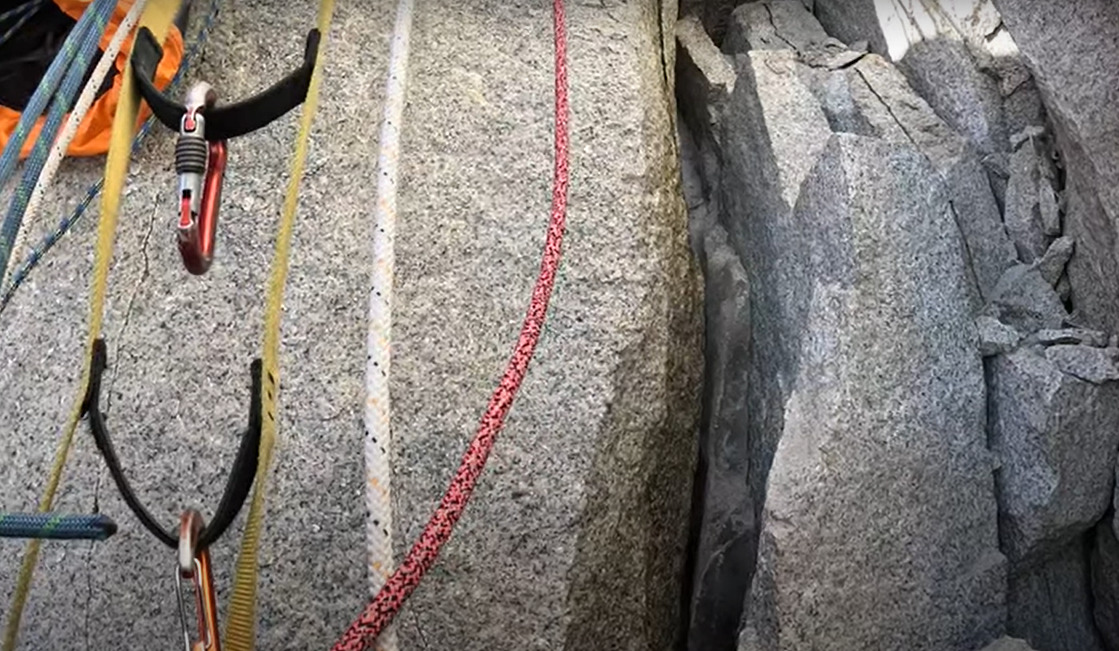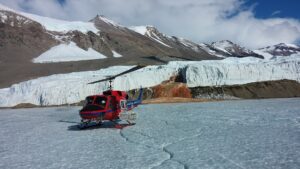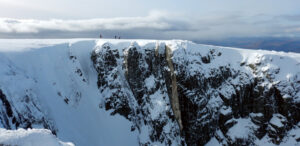Thawing permafrost on the granite spires of Patagonia is triggering the same dangerous rockfall that has plagued other mountain ranges. Most recently, some of the pitches on the East Face of Fitz Roy have changed. The objective risk of climbing has also increased.
From difficult to Russian Roulette
A fallen 20-meter slab has affected the first pitch of the Royal Flush route on Fitz Roy (also known as Cerro Chalten), Patagonia Vertical reported. The five bolts and the former belay station are now out of reach. The only way up now is a chimney (6c A0) with several unstable rocks inside it.
“One of them has a guillotine-like edge,” Patagonia Vertical warned. “It is not possible to climb it as a chimney because of the blocks…but it could be free-climbed.” The site also said that a climbing team will have to clean that section to make it safe again.
It also posted a video of a big rock slide to demonstrate how the rising temperatures have made conditions on Patagonian faces much more unstable.
Royal Flush now even harder
Royal Flush is a high-difficulty, 1,200m route up the center of the East Face of Fitz Roy. It was opened in 1995 by Kurt Albert, Bernd Arnold, Jorg Gershel and Lutz Richter. They free-climbed all except a mixed section and the crux.
Tommy Caldwell managed the first complete free climb in 2005, but he couldn’t touch the summit due to dangerous ice conditions near the top. Check this video of Nico Favresse climbing the route:
Studies on the impact of rising temperatures and in particular, climate change in Patagonia have abounded since the 2000s. All note how dramatically the area’s glaciers have shrunk and how thawing of the ice “glue” holding the peaks together has made them much more fragile.
Check this video for American climber Tyler Karow‘s on-site explanation. He shot the sequence last year at the Boeing Ledge on the Central Tower of Paine.






